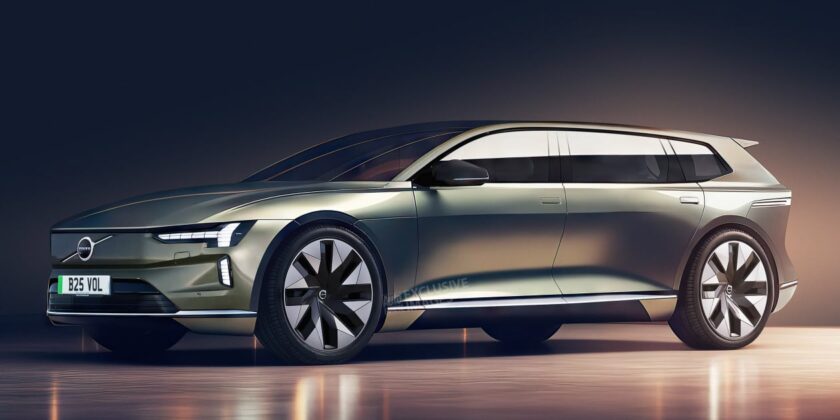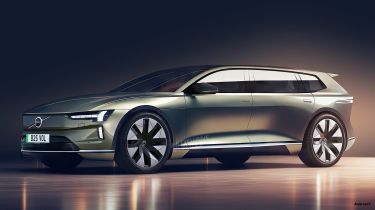Volvo built its name on estates, but will it abandon them in a switch to EVs? The CEO tells us a decision is imminent
Volvo is considering whether it should commit to an all-electric estate car or face leaving the zero-emissions wagon market to rivals like Skoda and Volkswagen, the firm’s boss has admitted.
The Swedish brand is launching a new model every year for the next five years, as it aims to make half of its sales EVs by 2025, and then move away from combustion power entirely by 2030. It has already launched new bookends to its range, the flagship EX90 SUV and the baby EX30 – and is expected to introduce an all-electric second-generation XC40 and a battery-powered replacement for the XC60 as it plugs the gaps between them. It’s also expected to spin a new electric saloon off the same SPA2 platform as the EX90, targeting customers in the United States and China.
New Volvo EX30 unveiled: order books are open for small electric SUV
No major brand has introduced an electric estate model yet, though, beyond the MG5 – and speaking to Auto Express at the reveal of the EX30, Volvo’s Chief Executive Officer Jim Rowan admitted that his team has to weigh up whether an electric successor to the V90 could make sense, or if the company should leave an area of the market soon to be populated by vehicles from Skoda (which has confirmed an EV estate for 2026), Audi (A6 Avant e-tron) and VW, which is planning a wagon called ID.7.
When asked directly if Volvo needed to consider an electric version of the type of vehicle that it has been synonymous with over several decades, Rowan said, “Yes, of course we do. We need to look at our range. We’ve topped and tailed that [with EX90 and EX30] and as you know, the C40 and XC40 have been born out of a car that was, in effect, a hybrid, so it doesn’t take a rocket scientist to work out that at some point we’ll need to electrify that. And then we’ve got to fill in the rest.
“Some of it is pretty easy, and then for some of it, you have to make choices. And I get so many emails asking me when somebody is going to do a proper electric wagon – mainly from people in northern Europe and Maine! But then you say, ‘What if we did that?’ and ask ‘What if we did a Cross Country version of it?’. Would that be something that would work in our portfolio? I’m not going to give an answer on that right now, but I will say that it’s something that it makes sense for us to be looking at.
“Can we do a really nicely designed and intelligent wagon? Yes, of course can can. The point really is whether we should do it – is there enough margin there, is there enough demand for that car? Are people really going to say, ‘Okay, I’d rather have a nicely designed wagon than choose a sedan [saloon] or an SUV’? Do we think the market is going to move back into that area? Because demand for estate cars and saloons has gone down in Europe. It’s a decision that we need to make, and we need to make it with the market intelligence that we have. We’re going to launch a new electric car every year for the next five years. Will an electric wagon be one of them? Watch this space.”
Electric Volvo estate exclusive image
Our exclusive image (above) shows how Volvo’s latest styling language from the EX90 and EX30 could transfer to a lower but more practical model – one that could almost certainly share a production site with the forthcoming electric saloon.
The company’s newly installed Global Head of Design, Jeremy Offer, said that advancements in battery installation technology – such as stitching the cells directly into the car’s structure, to make the floor thinner – may be required before an EV can mix current estate-car practicality with a low enough roofline.
But Offer added, “There’s always a balancing act with wagons, between maximising the amount of cabin space and optimising the aerodynamics. However, there’s no reason, if we wanted to create an estate, or a saloon, or whatever, why great design couldn’t make it sexy.”
Click here for our list of the best electric cars on sale right now…
Source: Read Full Article



 New Volvo EX30 unveiled: order books are open for small electric SUV
New Volvo EX30 unveiled: order books are open for small electric SUV